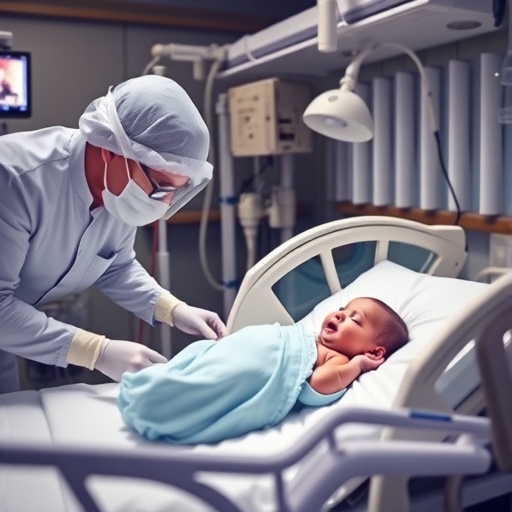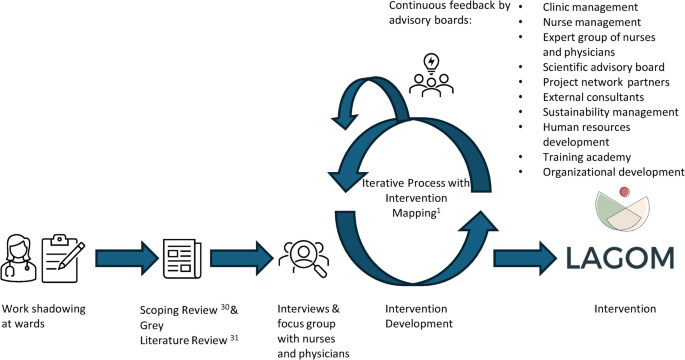

The global newborn screening market size is calculated at USD 3.37 billion in 2024 and is expected to reach around USD 5.96 billion by 2032, growing at a CAGR of 6.5% from 2024 to 2032.
Ottawa, April 04, 2024 (GLOBE NEWSWIRE) — The global newborn screening market healthcare market size surpassed USD 3.23 billion in 2023 and is estimated to be worth around USD 5.43 billion by 2031, a study published by Towards Healthcare a sister firm of Precedence Research.


Report Highlights:
-
Blood tests held a major chunk with 70% of the market share in 2023
-
Instruments were the largely used products, with a 55% market share in 2023.
-
Tandem Mass Spectrometry was a widely used technology in the newborn screening market.
United States reports 1 in 33 babies born with birth defects every year. In India, around 200,000 babies are born with congenital heart disease annually. Newborn screening is effective in spotting congenital heart disease early, allowing for better treatment outcomes.
Newborn screening is a very important test that doctors perform on babies soon after birth. This test is like a safety check to ensure the newborn’s health. Sometimes, babies can have specific health problems that are not easy to see initially, but the screening test can catch them early. When doctors find these problems early, they can start treatment quickly to keep the newborns healthy and happy.
The test is simple and safe. It usually happens within a few days of the newborn’s birth. A small amount of blood is taken from the newborn’s heel during the test. It might make the baby cry briefly, but it doesn’t hurt much, and it’s over quickly. This blood sample is then sent to a special lab, where experts check it for signs of certain health conditions.
Download a short version of this report @ https://www.towardshealthcare.com/personalized-scope/5128
One of the things doctors look for in the blood sample is called metabolic disorders. These are problems with how the body breaks down food into energy. If a newborn has one of these disorders, it can cause serious health issues, but with early detection, doctors can give the newborns unique treatments and diets to keep them healthy.
Newborn screening can also find out if a newborn has hearing loss. Even though babies can’t tell us if they can hear, the screening test can determine any hearing problems early on. This means that parents and doctors can work together to ensure the newborns get any help they need to learn and develop properly. Sometimes, the screening test can even find certain genetic conditions. These health problems come from the genes a baby gets from their parents. By discovering these conditions early, doctors can start the right treatments and help the baby grow strong and healthy.


Expanding newborn screening is essential, but it requires proper government funding. With technological advancements and more babies being born, there’s a higher demand for these screenings. Adequate financing ensures that the necessary infrastructure, equipment, and personnel are in place to conduct screenings effectively, leading to better health outcomes for individuals and overall public health benefits, including reduced long-term healthcare costs.
For instance,
-
In June 2022, Manitoba’s government unveiled plans to broaden its newborn screening initiative, intending to incorporate spinal muscular atrophy screening alongside other illnesses. Most countries have established regulations outlining newborn screening programs, detailing funding, the range of conditions screened for, and any exemptions.
-
The Manitoba government augmented its budget by $4.2 million to address the added workload associated with diagnoses.
In short, newborn screening is like a superhero check-up for babies. It helps doctors catch any health problems early to fix them and ensure the baby has the best start in life.
You can place an order or ask any questions, please feel free to contact us at [email protected]
Why Newborn Screening is Important?
Newborn screening is a crucial process that involves testing babies for certain genetic, metabolic, and congenital disorders shortly after birth. With the prevalence of newborns increasing, the demand for newborn screening has also risen significantly. This is because early detection and intervention can greatly improve the health outcomes for newborns and prevent serious health complications later in life.
-
In February 2023, data released by the WHO indicated that approximately 240,000 infants worldwide died within 28 days of birth annually due to congenital diseases. Congenital disorders were accountable for roughly 170,000 deaths among children aged between 1 month and five years.
-
In 2024, according to the Indian Pediatric Academy, each year, more than 200,000 children are born with congenital heart disease.
-
In 2021, as per Baby’sfirstTest.org, a group supported by the US Health Resources and Services Administration (HRSA), it’s estimated that two out of every 1,000 babies born annually in the US are affected by critical congenital heart diseases.
Newborn screening typically involves a simple blood test, often performed by pricking the baby’s heel to collect a few drops of blood onto a special filter paper. This blood sample is then analyzed in a laboratory to check for abnormalities in the baby’s metabolism or genetic makeup.
The importance of newborn screening cannot be overstated. Many of the disorders that newborn screening tests for may not present any symptoms at birth but can lead to serious health problems if left untreated. By identifying these disorders early, healthcare providers can initiate timely interventions such as dietary changes, medications, or other therapies to prevent or minimize the impact of these conditions. Some of the conditions commonly screened for in newborn screening programs include phenylketonuria (PKU), congenital hypothyroidism, cystic fibrosis, sickle cell disease, and various metabolic disorders. Early detection of these conditions allows for prompt treatment and management, significantly improving the baby’s quality of life and reducing the risk of long-term complications.
-
In 2023, Congenital hypothyroidism was reported to affect 2.1 out of every 1,000 infants in India, while the prevalence of inborn metabolic abnormalities ranged from 2-7.8%. The significant incidence of congenital diseases among newborns was expected to drive the uptake of tests, ultimately propelling market expansion by 2030.
In addition to benefiting individual babies and their families, newborn screening has broader public health implications. By identifying infants with certain genetic or metabolic disorders, healthcare providers can implement measures to prevent the spread of these conditions within communities and reduce the overall burden on the healthcare system. Newborn screening plays a vital role in promoting the health and well-being of newborns. By detecting potential health issues early and initiating appropriate interventions, newborn screening helps ensure that every baby has the best possible start in life.
Tandem Mass Spectroscopy and DNA Assay Offering Hope and Reassurance to Families Everywhere
The rapid advancement of technology is truly astounding, and nowhere is this more evident than in the field of newborn screening. Innovations like tandem mass spectrometry and DNA sequencing have entirely transformed how we detect and diagnose disorders in newborn babies. It’s like witnessing a miracle unfold before our eyes.
Technological advances, like tandem mass spectrometry and DNA sequencing, have revolutionized newborn screening. Tandem mass spectrometry can analyze small amounts of blood for multiple substances simultaneously, making it very efficient. It helps identify metabolic disorders by measuring the levels of various chemicals in the blood.
For instance,
DNA sequencing, on the other hand, reads the genetic code of a baby to check for any abnormalities that could cause disorders. It’s like reading a book to find spelling mistakes or missing pages.
These technologies have greatly improved the accuracy and sensitivity of newborn screening tests. They can detect a broader range of disorders, some of which may not have been possible to detect before. This means more babies can be diagnosed early and receive timely treatment, preventing serious health issues later in life. These advancements have made newborn screening faster, more reliable, and more comprehensive, leading to better outcomes for babies and their families.
For instance,
-
In March 2023, researchers at the Division of Laboratory Sciences, CDC, unveiled upgraded diagnostic tests featuring innovative technology for detecting genetic disorders.
Single Prick Can Keep Newborns Safe
A blood test for newborns may seem like a small thing, but it’s essential. It’s just a little prick on the baby’s heel, but it helps us find out if there are any health problems. Every drop of blood we collect is like a clue that helps us figure out what’s going on and how we can help. This test isn’t just a regular thing—it’s super important because it gives us hope and helps us find solutions to keep newborn babies safe and healthy.
We use science and technology to do the test, and it’s incredible how much we can learn from just a tiny bit of blood. It’s like a light shining in the dark, showing us how to ensure babies are okay. Doing this test shows that we care about babies and want to ensure they have the best start in life.
For instance,
-
In March 2022, Oxford University, headquartered in the United Kingdom, disclosed the initiation of its inaugural pilot investigation aimed at diagnosing spinal muscular atrophy.
When we get good test results, it’s like a victory because it means we can help the baby early on and make sure they grow up healthy and happy. It’s all about giving newborns the best chance to grow strong and do well in life.
Customize this study as per your requirement @ https://www.towardshealthcare.com/customization/5128
Beginning Newborn Screening Initiatives can be Quite Expensive
The cost of newborn screening programs can be a big challenge for both healthcare systems and families. Setting up and running these programs, a well as paying for the actual screening tests, can be expensive. This means that some healthcare systems might struggle to afford it, and some families might find it too expensive to get their baby screened. When screening programs are too costly, it can lead to unequal access to healthcare. Some families might not be able to afford the tests, which means their babies could miss out on early detection and treatment for health issues. This can result in poorer health outcomes and higher healthcare costs later on.
To ensure that all babies have access to screening, we need to find ways to make it more affordable. This might involve reducing the cost of screening tests or providing financial assistance to families who need it. By ensuring that newborn screening programs are financially sustainable, we can promote fairness and equality in healthcare access for all babies.
Geographical Landscape
North America has a well-established infrastructure for newborn screening, with extensive coverage and high uptake rates. Each state has its own newborn screening program in the United States, with variations in the number of disorders screened for and the screening methods used. Some states have comprehensive screening panels that include many disorders, while others may have more limited panels. Additionally, the implementation of new screening technologies, such as tandem mass spectrometry (MS/MS) and DNA sequencing, varies across states. In Canada, newborn screening programs are managed provincially, leading to similar variability in screening panels and methodologies.


In the Asia Pacific region, newborn screening programs differ from country to country. Some places like Japan, South Korea, and Singapore have good newborn screening programs. They test for lots of different conditions and most babies get screened. These countries have good hospitals and support from the government to run these programs. More and more people in the Asia Pacific region are realizing how important newborn screening is. This is because they are learning more about genetic and metabolic disorders that can affect babies. Also, new technologies are making it easier to test for these conditions. People are also working to ensure that moms and babies receive better healthcare. In many countries, there are efforts to make newborn screening programs better. International groups, governments, and non-profit organizations are helping ensure more babies get screened and get the care they need.
Browse More Insights of Towards Healthcare:
-
The global lung disease therapeutics market size was valued at USD 81.2 billion in 2022 and is projected to hit around USD 146.1 billion by 2032, growing at a CAGR of 6.1% from 2023 to 2032.
-
The global genomics market size to grow from USD 28.9 billion in 2022 to reach around USD 127.16 billion by 2032, registered at a CAGR of 16.1% between 2023 and 2032.
-
The global non-oncology precision medicine market size was at USD 70.16 billion in 2022 and is projected to surpass around USD 163.5 billion by 2032, growing at a CAGR of 8.7% from 2023 to 2032.
-
The global non-invasive blood glucose monitoring system market size to grow from USD 21.76 million in 2022 to reach around USD 202.73 million by 2032, at 25.0% CAGR between 2023 and 2032.
-
The global animal vaccine market was estimated to grow from USD 14.27 billion in 2022 to soar an estimated USD 36.91 billion by 2032, at 10% CAGR between 2023 and 2032.
-
The global pancreatic cancer market size was at USD 2.05 billion in 2022 and is projected to reach around USD 7.4 billion by 2032, expanding at a CAGR of 13.7%.
-
The global 3D Printed prosthetics market size is estimated to grow from USD 1.54 billion in 2022 and is projected around USD 3.28 billion by 2032, expanding at a 7.9 % of CAGR between 2023 and 2032.
-
The global anesthesia monitoring devices market size to grow from USD 2.41 billion in 2022 to reach around USD 5.96 billion by 2032, growing at a CAGR of 9.5% between 2023 and 2032.
-
The global diabetes drugs market was valued at USD 61.87 billion in 2022 and is projected around USD 118 billion by 2032, growing at 6.7% CAGR for 2023 to 2032.
-
The global precision oncology market was valued at USD 100.06 billion in 2022 to reach an around USD 258.35 billion by 2032, expanding at a 9.9% CAGR from 2023 to 2032.
Competitive Landscape
Various factors, such as technological advancements and regulatory frameworks shape the competitive landscape for the newborn screening market. Technological advancements drive competition as companies strive to develop innovative screening technologies with improved accuracy, sensitivity, and speed. Companies may also differentiate themselves by offering comprehensive screening panels covering a wide range of disorders and specialized tests for specific conditions. Regulatory requirements and compliance also influence competition in the newborn screening market. Companies must adhere to regulatory standards and obtain necessary product approvals, which can impact their ability to enter new markets and compete effectively.
Recent Developments
-
In September 2020, PerkinElmer (a US company) got European approval for its EONIS screening test. This test helps check for three different health problems in newborns: spinal muscular atrophy (SMA), severe combined immunodeficiency (SCID), and X-linked agammaglobulinemia (XLA).
-
In June 2022, Revvity Inc., part of PerkinElmer Inc., partnered with Novartis AG, a major pharmaceutical company, to widen newborn screening for sickle cell disease (SCD) in sub-Saharan Africa. They aim to raise awareness about newborn screening and the importance of starting treatment early with hydroxyurea (HU) and other SCD treatments.
-
In June 2022, Nam Au partnered with the American Society of Hematology (ASH) to bring their technology to six more African places. This technology is already being used in Ghana to help diagnose babies with sickle cell disease. This partnership helps more places in Africa join the group working on newborn screening.
Market Key Players
Market Segmentation
By Product Type
By Test Type
-
Blood Tests
-
Heart Screening
-
Hearing Screening
-
Other Tests
By Technology
-
Tandem Mass Spectrometry
-
Pulse Oximetry
-
Enzyme Based Assay
-
DNA Assay
-
Electrophoresis
-
Others
By Geography
-
North America
-
Europe
-
Asia Pacific
-
Middle East and Africa
-
South America
Acquire our comprehensive analysis today @ https://www.towardshealthcare.com/price/5128
You can place an order or ask any questions, please feel free to contact us at [email protected]
Explore the comprehensive statistics and insights on healthcare industry data and its associated segmentation: Get a Subscription
About Us
Towards Healthcare is a leading global provider of technological solutions, clinical research services, and advanced analytics to the healthcare sector, committed to forming creative connections that result in actionable insights and creative innovations. We are a global strategy consulting firm that assists business leaders in gaining a competitive edge and accelerating growth. We are a provider of technological solutions, clinical research services, and advanced analytics to the healthcare sector, committed to forming creative connections that result in actionable insights and creative innovations.
Web: https://www.towardshealthcare.com
Browse our Brand-New Journal@ https://www.towardspackaging.com
Browse our Consulting Website@ https://www.precedenceresearch.com
For Latest Update Follow Us:


link






